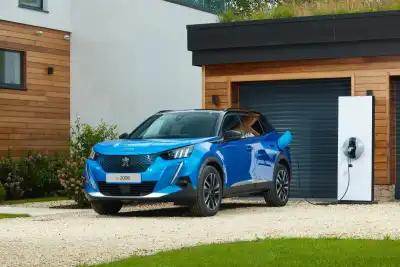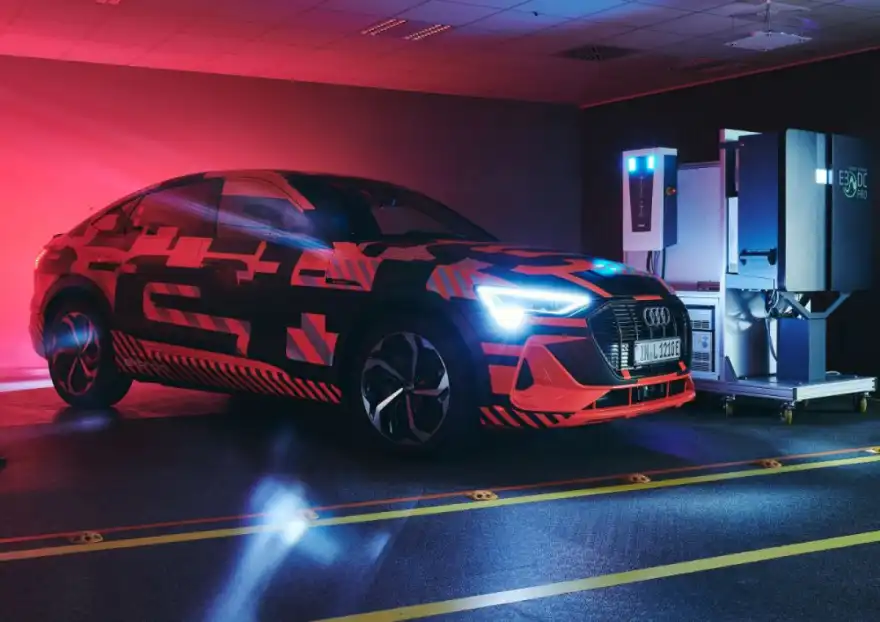
Being able to charge your car at home is almost essential to owning an electric car, so it’s important to understand what’s involved with charging at home before you decide to purchase an electric vehicle to ensure the transition is as seamless as possible.
There are two options when it comes to charging your electric vehicle at home, the first option is by using a regular wall plug socket and a 3 pin plug, and the second option is by using a wall box charger.
Charging using a 3 pin plug
Charging using a 3 pin plug is the slowest and most primitive way of charging your electric car. A 3 pin plug restricts the rate at which your car can charge to a maximum of 2.3kW. In most modern electric vehicles that means a full charge will take in excess of 20 hours.
For example, a Nissan Leaf with a 40 kWh battery would take 21.62 hours to charge from 0 to 100% when charged via a 3 pin plug socket.
There is also a minor but notable risk with relying on a 3 pin plug socket, which is that the socket is limited to 3kW and the cable will run close to this capacity at 2.3 kW. If you’re using a 3 pin plug socket close to its power rating for a number of consecutive hours at a time then you are putting a significant strain on the circuit, which is less than ideal in the long term.
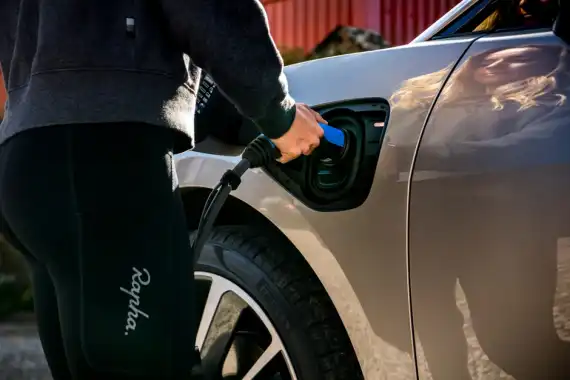
Charging using an electric wallbox
The vast majority of electric car owners will charge their car via a domestic electric wall box. These can typically deliver around 7kW of power, which is roughly 3 times the power you can get from a 3 pin plug socket.
A Nissan Leaf with a 40 kWh battery would now only take 5.71 hours to charge from 0-100% when charged via a 7 kW wall box.
The installation process is very simple and involves mounting a charge point to an exterior wall or garage near where you park your vehicle. You can then park your car up overnight and come out to a fully charged battery in the morning.
It is also worth noting that electricity also becomes cheaper during off-peak hours, which means overnight charging is cost-efficient.
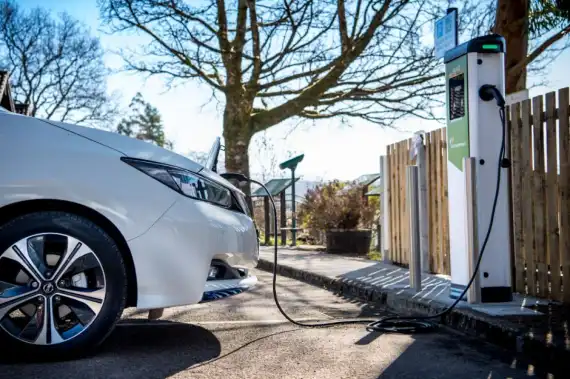
Can you charge an electric car with solar panels?
Yes. If you have solar panels fitted at home then they can be used to charge your electric car, which, in turn, can bring the cost of your electric range down to 0 pence.
Solar panels work by generating and storing energy during daylight hours, which means that when you return home from work in the evening your electric wall box can be ready to recharge the battery of your vehicle overnight.
It is important to bear in mind that the number of solar panels you will need will depend on how often you hope to recharge your car, the number of daylight hours you get throughout the years. Keep track of how many kWh of your battery you use each day and you will be able to see how much solar energy you need to generate to replenish your battery.
You will also need to factor in a battery storage solution. Most electric cars are charged overnight when there is no sunlight, so solar energy cannot be used to charge the vehicle directly. You will need a storage solution to store your solar energy generated throughout the day to charge your vehicle at night time.
How to charge an electric car at home without a garage
Don’t worry. Not everyone is privileged enough to own a garage and that is absolutely fine. Thankfully a domestic wall box charging point is weatherproof and versatile. If you have a driveway next to your house, you can still fit a wall box to an exterior wall of the building and have it hardwired into your domestic electricity supply.
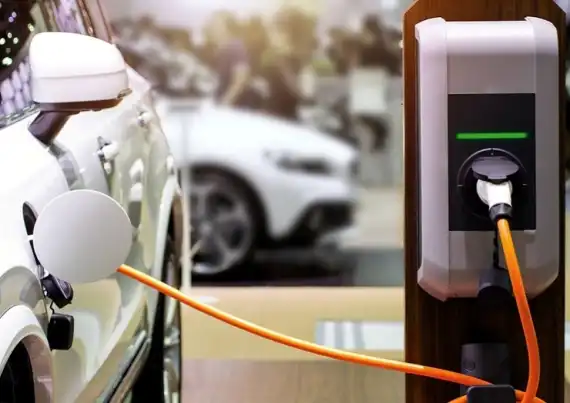
How to charge an electric car without a garage or driveway
If you don’t have access to a garage or driveway, then charging an electric car is slightly more tricky. It is possible that you will have to take a weekly detour to a hub of rapid chargers to refill your battery to full, while also being strict to charge with the free public charging stations at supermarkets and public car parks in the meantime.
The majority of people in the UK drive less than 30 miles to work each day, which means that having a full battery on a modern electric vehicle capable of over 200 miles is not always necessary. Explore the public charging infrastructure in your area to see how viable it is to get power from charging stations near you frequently.
Lamppost and road furniture charging is becoming more and more popular however this infrastructure is still a work in progress and the availability will vary from council to council.
Another potential solution is workplace charging. Many electric vehicle owners use their cars for their commute to and from work, where the car will often sit outside the workplace for over 8 hours a day.
The government introduced The Workplace Charging Scheme to allow grants of up to £14,000 for businesses to reduce the cost of installing electric vehicle charging points. The WCS grants are capped at a maximum of £350 per charging point and there is a limit of up to 40 sockets per qualifying business.
If your employer hasn’t already considered installing electric vehicle charging points then it may be worth informing them about The Workplace Charging Scheme as this would be an excellent solution for people who want to buy an electric car but are not able to charge their vehicle on the driveway or in a garage.
These charging points will typically charge at 7 kW which will be good enough for a 40 kWh battery to be fully recharged within a typically 8-hour shift.




